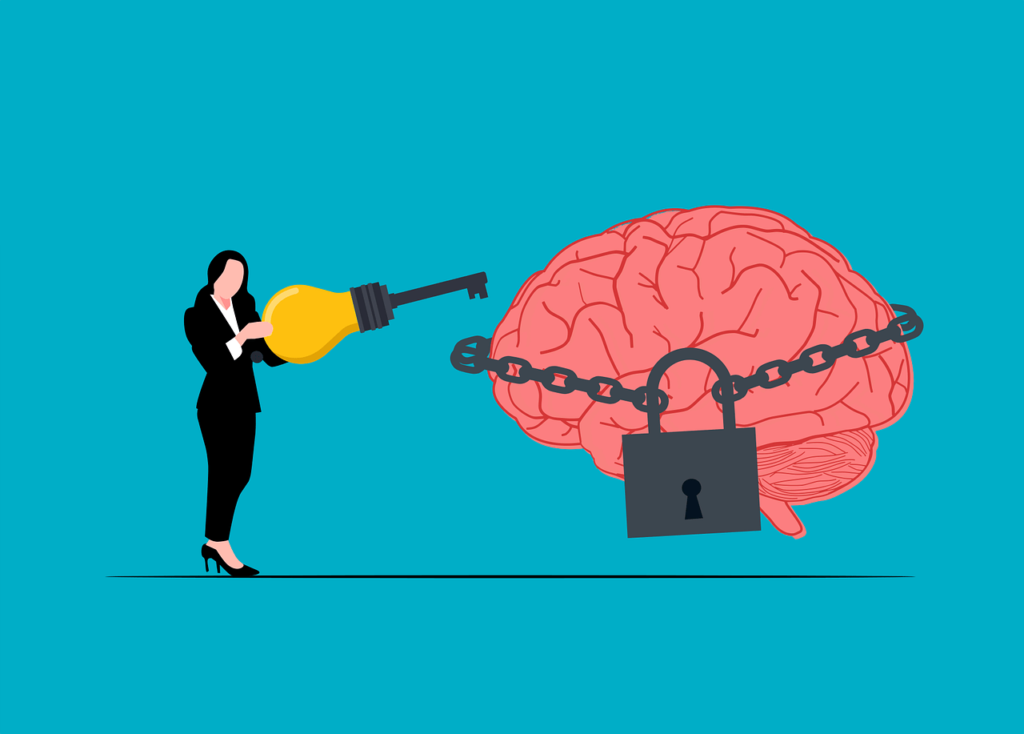Best 7 Proven Ways to Overcome Loneliness | How to Deal with Loneliness

We all feel lonely at some point. It is a mental state that is not visible from the outside, but creates a deep emptiness inside. Despite being busy, friends, and social contacts, why do we feel like no one is around? In this age of technology, where we are all connected, the distance between people has increased the most.
Loneliness is not just a matter of the mind, it also affects the body. Studies have shown that people who are alone for a long time have an increased risk of depression, stress, and even heart problems. So there is no room for minimizing this issue. In this article, we will learn 7 real and proven ways to overcome loneliness, which you can apply in your life. Not some empty motivation, but rather some strategies that really work in real life. Let’s walk together on the path to eliminating this loneliness within ourselves and making life more meaningful.
1. Keep yourself busy doing something you enjoy
Loneliness takes a terrible form when our time is incomplete, our mind is empty, and there is silence around us. At this time, various negative thoughts come to mind, confidence decreases, and even depression can consume us. And so, studies have repeatedly shown that keeping yourself busy is a very effective way for mental health.
What does the research say?
A study published in the Journal of Positive Psychology in 2016 shows that people who spend their time on meaningful activities such as creative work, learning, or helping others have much less stress and loneliness. The same study also said that when we focus on something we enjoy, a state called ‘flow state’ is created, a world of attention where there is no room for loneliness.
Why should you do it?
Keeping yourself busy does not mean that you are just wasting time. Rather, you are awakening your inner potential. Doing things that make you happy releases a hormone called dopamine in the brain that keeps you happy, increases motivation, and helps maintain mental balance.
Let’s take a small example, let’s say you love drawing. By spending some time on this every day, you are not only filling your time, but also nurturing your creativity. This will gradually increase your confidence, and satisfaction will replace loneliness.
Benefits:
Distracts attention: Reduces negative thoughts.
Increases confidence: Enjoys using your time.
Good mood: Due to the release of dopamine and endorphins.
I feel valuable: Feeling proud of my own work.
Personality develops: By learning or creating something every day.
How to start?
Find something you love, it can be listening to music, writing books, video editing, cooking, creating content, handicrafts, or even planting trees, allocate at least 30 minutes a day. And immerse yourself in that work regularly.
2. Do regular physical exercise
When you are sad or feel lonely, you don’t remember to take care of your body. But at this time, physical exercise can be our biggest friend. Scientists have repeatedly emphasized exercise to get rid of mental conditions like loneliness.
What does the research say?
Studies by the Mental Health Foundation of the United Kingdom and the Harvard T.H. Chan School of Public Health in the United States have shown that regular exercise can reduce feelings of depression and loneliness by 20-30%. One study showed that even walking for 30 minutes 3 days a week significantly improves mental health.
During exercise, the body releases endorphins, the ‘happy hormone’, which keeps the mind happy and reduces anxiety. In addition, exercise increases the production of BDNF (Brain-Derived Neurotrophic Factor) in the brain, which plays a role in increasing mental stability and memory.
Why should you do it?
To eliminate loneliness, balance between the body and mind is necessary. Exercise restores that balance. Keeping the body active keeps the mind active. When the mind becomes stagnant, loneliness increases. When exercise becomes a habit, a rhythm comes into life, which reduces loneliness.
Benefits:
Keeps the mind healthy: Depression and loneliness are reduced due to the release of happy hormones.
Improves sleep quality: Good sleep means a good mood.
Increases self-confidence: If the body is healthy, self-confidence also increases.
Creates rules: A constructive daily routine is created.
Builds social connections: Participating in group exercise or workout classes allows you to meet new people.
How to start?
Go for a 20-30 minute walk every morning or evening. If possible, follow light fitness exercises on YouTube or free apps. There is no need to go to the gym at first. You just have to build a habit gradually.
3. Talk to someone you trust
The biggest aspect of loneliness is that this feeling keeps eating away at you. No one can even understand from the outside, and inside we become alone with the burden of our emotions. If this burden cannot be told to anyone, it gradually has a serious impact on mental health. Therefore, the first and most effective step to get out of loneliness is to trust someone and talk to them.
What does the research say?
A study by the American Psychological Association (APA) in 2019 said that people who share their feelings with others during times of mental stress improve their mental state quickly. And those who struggle alone tend to experience increased stress, depression, and social isolation. Also, another study published in the Journal of Health and Social Behavior said that honestly speaking out releases the hormone oxytocin in the brain, which creates a sense of security and connection in our minds.
Why should we do it?
Due to loneliness, we drown in negative thoughts within ourselves.
It seems that no one will understand, no one is by your side, this misconception increases.
But in reality, talking openly with a friend shows that we are not alone.
Speaking does not mean weakness, but rather a way to take care of our own mind.
Benefits:
The mind is lighter: When emotions or pain are released, the pressure is reduced.
Relationships are deepened: A trust is created with the person you tell.
Support is obtained: Many times others can give effective advice.
Feel valued: Someone is listening attentively—this feeling is very great.
Self-esteem increases: Giving importance to your feelings is a practice of self-esteem.
How to start?
Choose a very close friend, sibling, guardian or someone with whom you feel safe. Instead of telling the whole story at the beginning, start with small feelings like “I don’t feel good today”, “How do I feel inside” this way the door to talk will open. And if you feel that there is no one to talk to, then seeking professional help from online counseling or therapy platforms can also be very effective.
4. Take a break from social media now and then
Many of us resort to social media to relieve loneliness these days. But sadly, studies have shown that excessive social media use can actually increase loneliness. Because, by seeing posts of others’ well-organized lives, we compare our lives with our own and feel even more alone.
What does the research say?
A 2018 study by the University of Pennsylvania found that reducing social media use by just 30 minutes a day significantly reduces loneliness, depression, and FOMO (Fear of Missing Out). And a study published in the Journal of Social and Clinical Psychology says that social media browsing destroys our self-esteem and isolates us from real life.
Why is it important to take a break?
On social media, we see the artificial beauty of others’ lives.
We feel less valuable.
Virtual relationships take the place of real connections.
Mental peace and comfort decrease.
This is how loneliness deepens.
Benefits:
The brain gets a rest: It is free from constant scrolling.
Mood improves: The stress of comparison decreases.
Human connection increases: It is easier to spend time with family and loved ones.
Creativity increases: Time saved, which can be used to learn or create something.
Get to know yourself better: You can understand yourself without being swept away by the social media wind.
How can you take a break?
Do a “digital detox” for a specific time every day, such as not answering your phone after 9 pm.
Use an app controller that blocks social media at specific times.
As an alternative, try reading a book, walking, journaling, or doing something handmade.
Observe at least one “No Social Media Day” a week.
5. Volunteer or engage in social service work
The feeling of loneliness consumes us more when we think “no one understands my needs” or “I am not important in anyone’s life.” One effective way to overcome this misconception is to engage in helping others. When we volunteer or engage in community service, we feel that our presence and work are valuable to someone. And this feeling becomes the strength to overcome loneliness.
What does the research say?
According to the National Institute on Aging and Harvard Health Publishing, volunteering not only improves mental health, it also increases life satisfaction in the long term. One study found that people who regularly engage in community service have lower rates of depression and loneliness and higher levels of emotional stability.
Why should you get involved?
Helping others awakens your sense of self-worth.
You meet new people, which reduces loneliness.
You increase your connection to society.
You create positive energy within yourself.
Benefits:
Mental peace: The thought of “I was able to help someone” gives you peace.
Social connections: You can come into contact with new friends, colleagues, and enthusiastic people.
Self-confidence: Fulfilling responsibilities builds self-confidence.
Creates a sense of responsibility: Discipline also comes in personal life.
Time is valuable: Time can be spent meaningfully instead of being wasted in loneliness.
How to start?
Search for an NGO or community center in your neighborhood.
You can donate blood, clean up a neighborhood, or volunteer at an old age home.
Join online charity organizations.
You can find your place in many such initiatives as teaching, food distribution, emotional support.
Think about it, when you bring a smile to someone’s face, are you really alone?
6. Don't be afraid to seek professional help
Loneliness often reaches a level where ordinary means do not work. A thick fog accumulates in the mind that cannot be removed by your own efforts. This is where the help of a professional mental health expert is needed. But sadly, many in our society still think, “Psychologist means I am crazy.” But the reality is completely different.
What does the research say?
According to the World Health Organization (WHO), 1 in 4 people suffer from mental health problems at some point in their lives. At the same time, the American Counseling Association says that those who regularly talk to a therapist or counselor have significantly reduced rates of loneliness, depression, and anxiety, and increased mental stability.
Why not be afraid?
Professional therapists do not judge.
They use scientific methods to get to the bottom of the problem and find solutions.
What you cannot tell your family or friends, you can safely say here.
Therapy is not about weakness, but about the courage to take care of yourself.
Benefits:
It is easier to understand yourself: The roots of mental problems can be uncovered.
You get guidance: You know how to deal with them.
You can feel free from stress: Talking about your inner self can lighten the emotional burden.
Self-esteem increases: A big step towards valuing yourself.
A new life begins: A path out of loneliness and towards a happy life.
How to get help?
Find a list of psychologists/psychotherapists in your area.
If you want, you can choose video therapy or message counseling on an online platform.
Remember, asking for help is never a weakness, it is the ultimate form of courage.
7. Learn to treat yourself well
Loneliness often comes from within, not from outside. We talk to ourselves or behave in ways that even a close friend would not do to us. “I am a failure”, “No one wants me”, “I am alone” such self-criticism deepens loneliness. This is where self-compassion is needed, that is, being compassionate towards yourself, learning to forgive yourself and being a good friend to yourself.
What does the research say?
Dr. Kristin Neff, the most important researcher on self-compassion, says “A person who can be compassionate towards themselves is much more mentally stable and able to fight loneliness or depression.”
Her research has shown that through self-compassion, people learn to accept their failures and suffering more easily and feel peace inside.
Why is self-compassion important?
Neglecting your feelings increases stress inside.
Negative thoughts keep circulating in the brain.
We think, “I deserve to be alone.”
But learning to love yourself means standing by yourself.
Benefits:
Self-esteem increases: The belief that “I am good just the way I am” is born.
Loneliness decreases: If you can love yourself, your mind is not alone even when you are alone.
Stress decreases: You learn from mistakes, not beat yourself up.
Mental health improves: Anxiety, depression, and inferiority complex decrease.
Relationships improve: If you love yourself, it becomes easier to love others.
How to start?
Stop saying negative things to yourself, “Why did I do that?” Instead, say, “I am human, I can make mistakes.”
Look in the mirror every day and say, “I love you.”
Do things you love—drinking tea, listening to music, walking, reading books.
Write down your feelings in a diary to clear your mind.
Instead of blaming yourself for the mistakes you made, look at the learning aspect.
Last words
There is no magic solution to overcome loneliness, but if you gradually introduce the above 7 ways into your lifestyle, then this feeling will gradually become lighter. Remember, loneliness means you are not alone, it is a mental state, which can be changed. Life is beautiful, it just needs a little awareness, some changes and an attitude of loving yourself. You can share any experience of your life here.
- Category : Self-Development
- Author : Tuhin Bin Alamgir



